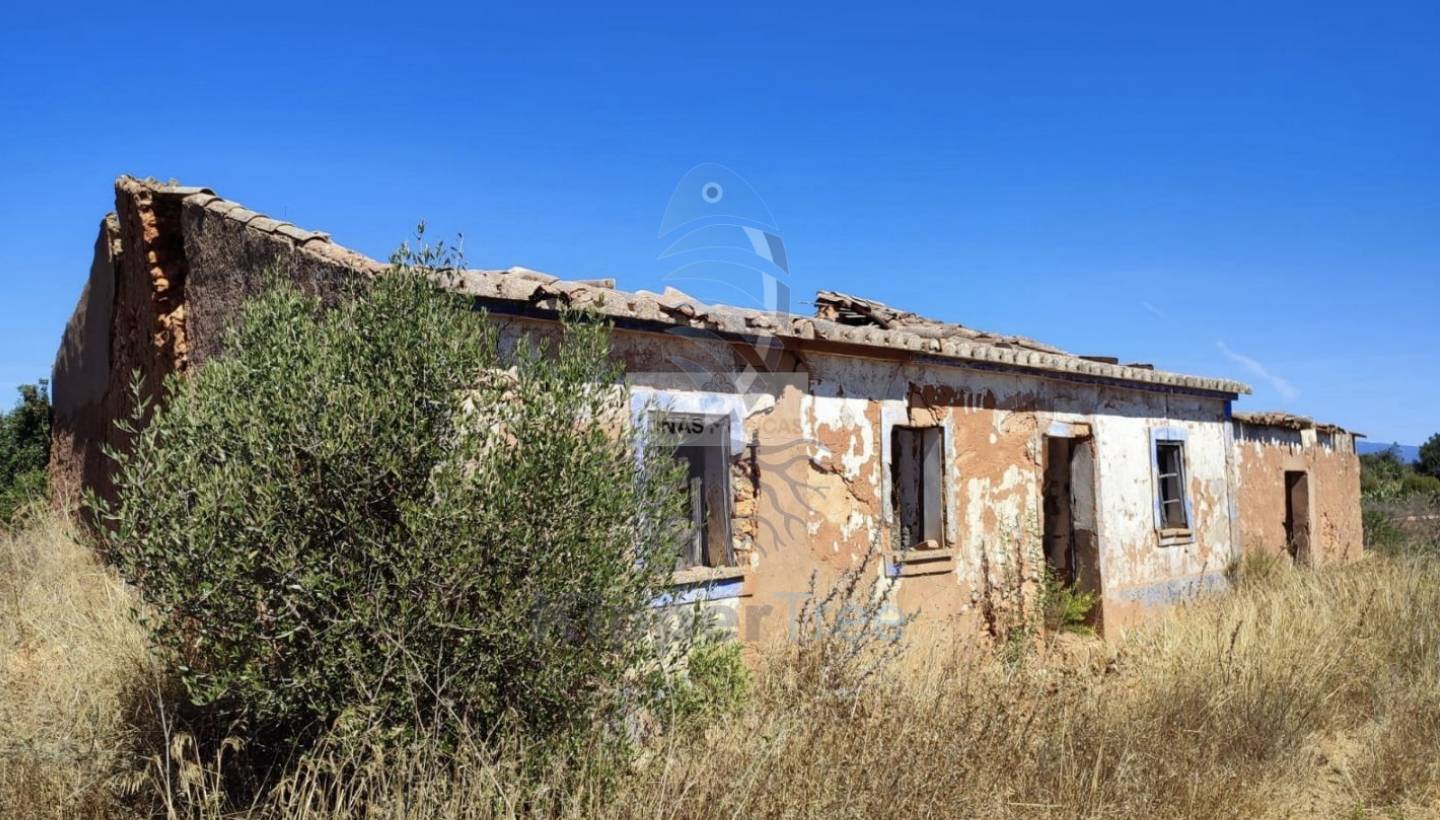
Planning Permission in Central Portugal
So, you want to build or renovate a property in Central Portugal? And by Central I mean from the Siver coast to to Spanish border covering these 5 districts: Leiria, Santarém, Coimbra, Castelo Branco and Portelegre.
You've watched all of the TV shows, sucked up the presenter's recommendations and feel that purchasing a property in Portugal is the right thing to do. You've done your homework, sorted your finances, planned the scouting trip and are ready to dive in. You may have even found your dream home and have made an offer or even had one accepted. You could even be well on your way to moving to Portugal full-time and have a meeting with the notary to sign the deeds.
But wait. Stop right there...
What about the rules? What about the planning consent and permissions? Central Portugal's property market and the people that operate within it, differ wildly across its very different districts and depending on where and what you buy, you may run into difficulties.
Having bought, renovated and sold land and property in Portugal over the past 15 years in multiple districts, I have experienced some troubles, frustrations and bureaucracies in the process of renovation and planning. Without wanting to put you off in any way from moving to this glorious paradise, I would just like to fire a gentle warning shot across your bows.
Planning consent for renovations and or new builds is slow and can take well over 12 months. Rules differ from district to district and the only way to navigate this complex web of what might seem like irregularities or differences between different districts, (even if you speak Portuguese,) is to use a qualified expert.
Here are the two reasons that encouraged me to write this article today. Having just watched a re-run of the TV show A Place in The Sun, yesterday courtesy of channel 4, I felt compelled.
In this episode; "Ben Hillman helps social worker Gilly find a retirement home for her and husband Andy in Central Portugal - and with Andy unable to join the search, daughter Kat comes along instead."
So let's start with why I am telling you this and its relevance. In this episode of the show, one of the houses is a property that I renovated (with the help of a team of local builders) from a ruined pile of stones in 2007 and subsequently sold in 2011. I won't say which one, as that's not the point, just the reason I was watching the show, what is the point however is it's interesting to see how, for television purposes, the presenter appears to guide the buyer through the negatives and leaves her with a sense that anything is achievable. This is a common practice used by builders here in Central Portugal and you need to be aware.
One property has an above-ground pool, a no-no for the buyer, yet the presenter appears to circumvent this negative by stating that due to the property's low price it would leave them enough money to put in an in-ground pool. Great so everyone is happy!
Well, for one I'm not, so let's stop here and analyse this.
Firstly how does a UK-based TV presenter know that the local Camara (council) permits in-ground pools in that location? Many councils don't, due to locations near rivers, beauty spots or if the ground they are situated on is of scientific value or is protected land.
Building a pool with consent may also depend on the size of the plot and may affect what size of pool could be built. This often happens within some councils. The land would also need to be registered on an Urban article and not Rustic, but then again not all councils have followed this procedure in the past. Many properties in Central Portugal have both Urban articles for the dwelling and Rustic articles for the land for which you are taxed separately and that is where it becomes less straightforward. Trying to build an in-ground pool on a rustic plot, well, good luck with that...
Joking aside, it is complex here in Central Portugal, especially in the more remote regions where time has literally stood still.
The presenter then talks about changing one of the property's layouts and converting a bedroom into a kitchen-diner. Now usually internal alterations are okay but changing the number of bedrooms means a change in the documentation for sale purposes. You are also not permitted to change the exterior of the property in many districts, so adding larger windows and doors or extending the property may give rise to planning consent being needed. So, the rule is to be very careful when renovating old dwellings. You cannot just rock up in a campervan, buy a pile of stones and build a house to live in. Well not legally anyway, not anymore. The trouble in Central Portugal is that some things are still working the old-fashioned way, some builders are ridiculously unreliable and are so desperate for work that they will literally tell you what you want to hear and that is a phrase that usually sounds like "Don't worry, you don't need permission for that here."
YOU HAVE BEEN WARNED...
Wait, I hear you say. "Tons of people are arriving in Portugal in Campervans and renovating old ruins, doing the work themselves and living the good life. It's all over social media." Yes, you would be right, there are thousands and the problem with that is it is highly likely to be illegal and if that person ever comes to try to sell the property that has been renovated without any official procedure they may have difficulties. Things are changing here in the central region and what was once the norm is now becoming a whole new landscape.
Fact Time
An interesting fact: According to Portugal’s national statistics institute (INE), The number of building projects granted planning permission fell by 7.9% in the second quarter of 2022.
Now I'm not saying that this reduction is down to illegal buildings or that the Government are reducing the number of planning approvals being made. It may be down to the new Golden Visa restrictions, but who knows? This is just a statistic for you to muse over, just like the following.
6,200 buildings received planning permission in Q2, an increase of 2.9% like-for-like in 2019.
The INE said projects for 6,200 buildings were given planning permission, -7.9% against the same period last year (+1.6% in Q1 of 2022) and +2.9% in comparison to the first quarter of 2019.
The number of licences for new builds fell 6.7% (+5.3% in Q1 of 2022), corresponding to an increase of 9.9% in Q2, 2019, according to INE data.
Planning permission for the refurbishment of existing building stock was down 9.5% (-8.6% in Q1, 2022), which was a decrease of 14.8% in the second quarter of 2019.
It is estimated that 3,600 buildings were completed in Q2, 2022, down 4.9% like-for-like (-0.5% in Q 1 2022) and up 7.0% on Q2, 2019.
When compared with the previous quarter, the numbers show a fall of 10% in building licences (+21.8% in Q1 of 2022), while the number of buildings completed fell 5-8%. (-3.1% in Q1 of 2022)
Facts, facts, facts...
So what do I do?
Well, the first thing you should do before you sign on that dotted line in the notary's office is to ask the seller for a copy of the property's paperwork and take it to a meeting with the local Camara and talk to the engineer. These meetings are of a verbal nature where you can discuss the property or land and what you would ultimately like to achieve. They will check what you have and advise accordingly. It is best to do this in the presence of an architect as they may then be able to put the verbal agreements in writing.
If you are told you do not need consent then it's a "woo hoo" and off you go following their advice. If they say you require consent then that is what you must do, so it's now time for some homework.
Key Documents you must read up on.
Building viability (Viabilidade de Construção)
The architect’s project (Projecto de Arquitectura)
The detailed project (Projecto de Especialidade)
The building licence (Licença de Obras)
The habitation licence (Licença de Habitação)
You need to familiarise yourself with these documents as these are crucial to the planning regulations and the best person to help explain them and the process is a qualified Portuguese architect.
Do not be tempted by hearsay, other ex-pats or social media. Things are changing rapidly with many digital changes within local government happening and you need an up-to-date expert. You also need to gain a full understanding of how Portugal works and how districts differ in their application of the rules. There is definitely still an element of “not what you know, but who you know” in Portugal so here are some personal recommendations.
Top Tips and Recommendations
1, Before signing any paperwork with a seller, seek advice from the local Camara (council) in the form of a meeting with the engineer to discuss the property and your ideas. You can link to all the local Councils from the district pages of KipperTree Click here.
2. Use a reputable architect who understands your needs and speaks your language. I personally recommend Nuno Madureira Miguel, who is situated centrally in Tomar. Expert advice at good prices. Click here
3. Find a reputable Engineer for your project. I recommend Rui Manuel M. Mão de Ferro, again based centrally in Tomar. Click here
4. Research as much as you can utilising expert advice about all things Portugal. Try using Expacity, they display a wealth of recorded and live webinars in English from vetted experts across all fields in Portugal. Click here
5. Utilise the services of a reputable English-speaking surveyor to assess the structural integrity of the property pre-purchase. I recommend Reabilitejo for the Central region, they have expert knowledge and are a must-go-to resource. Click here
6. Finally DO NOT transfer money to Portugal without taking currency transfer advice. I recommend Spartan FX, which is a very reputable UK-based Currency Specialist, one competent in Global transfers including the US. Click here
I hope that you have not been dissuaded about moving to Portugal by this article, that was not the intention. Just a little guidance and help from someone who has made plenty of mistakes.
Best wishes Darren
Article by Darren Keohane - CEO KipperTree

